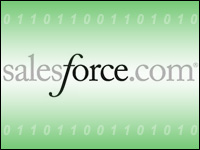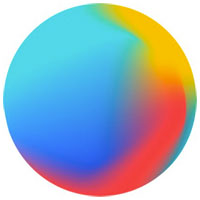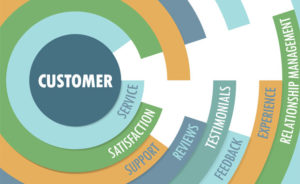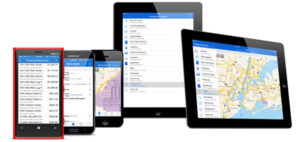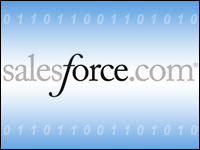
Salesforce on Tuesday announced the launch of IoT Cloud, an Internet of Things offering designed to connect billions of events with Salesforce, which the company says will help its clients’ bottom line.
IoT Cloud is powered by Salesforce Thunder, the company’s new massively scalable, real-time event processing engine.
“Salesforce is turning the Internet of Things into the Internet of Customers,” CEO Marc Benioff said at the company’s Dreamforce conference in San Francisco. “The IoT Cloud will allow businesses to create real-time, 1-to-1, proactive actions for sales, service, marketing or any other business process, delivering a new kind of customer success.”
Listening to the Connected World
The IoT Cloud is designed to help empower businesses by connecting IoT data, digital content and customer information to provide greater context and make the information more actionable.
For example, a thermostat maker could parse billions of events collected from weather reports, sensors and temperature settings, and alert a customer about how to better manage heating and cooling systems to remain in budget, Salesforce said.
“Salesforce is focused on helping businesses track the movement of things in such a way that it can be correlated to your customers’ wants and needs,” said Jeffrey Kaplan, managing director ofTHINKstrategies.
The IoT Cloud could enable Salesforce users to convert the data generated by connected things into real business value, he told CRM Buyer. “Salesforce will also help to educate corporate executives regarding the business benefits of IoT and give them greater confidence in adopting IoT initiatives.”
IoT Opportunities
Big data is providing a big opportunity. More than 90 percent of the data in the world was created in just the past two years, and the number of connected devices is expected to hit 75 billion by 2020, according to Salesforce.
“Like many other cloud-focused vendors, Salesforce sees developments around IoT as a key business opportunity,” said Charles King, principal analyst atPund-ITPund-IT.
“That’s because the company assumes that as the market develops, its clients will begin to leverage solutions to gather and gain from business-related IoT data,” he told CRM Buyer. “Not surprisingly, Salesforce wants those customers to use its own services rather than those of specialists like GE Predix or big data or analytics players like IBM and Cloudera.”
Unlike other cloud-based players, Salesforce has focused on the end user — its customers’ customers.
“Although everyone is talking about IoT, Salesforce really led the way in making its platform and ecosystem support IoT projects that companies could actually execute on,” said Rebecca Wettemann, vice president of research for enterprise applications atNucleus Research.
“In fact, companies like Enterasys were doing IoT with Salesforce before ‘IoT’ was a commonly used term,” she told CRM Buyer. “Although there are other vendors that have many of the technology components in their portfolio, Salesforce has focused on making IoT projects with clear value an attainable goal for customers. This further broadens access.”
Clouds on the Horizon
That doesn’t mean it will be an easy sell for Salesforce, especially as “big data” and “cloud computing” often are seen more as buzzwords than as a proven strategy to success.
“The IoT market is still very embryonic with few real-world success stories,” said Kaplan.
In fact, many corporate executives are hesitant to move forward and may need to be educated about the business outcomes they can expect from IoT, he added. The result could be a slow adoption process of IoT in general and modest adoption of the Salesforce IoT Cloud.
“Even after corporate executives decide to move forward with IoT deployments, they will face an overwhelming assortment of hardware and software piece-parts that need to be assembled to achieve their objectives,” Kaplan noted. “Figuring out how the Salesforce IoT Cloud fits into their plans will be part of this challenge.”
The next 12 to 18 months will be critical to Salesforce’s IoT efforts.
“On the plus side, the IoT market is still in early days, and Salesforce has thousands of satisfied customers that should be willing to hear the company’s pitch,” Pund-IT’s King said.
“The company is also a late arrival in a rapidly evolving market,” he pointed out, “which could make it difficult, at best, to establish the kind of presence and reputation it hopes to achieve.”


